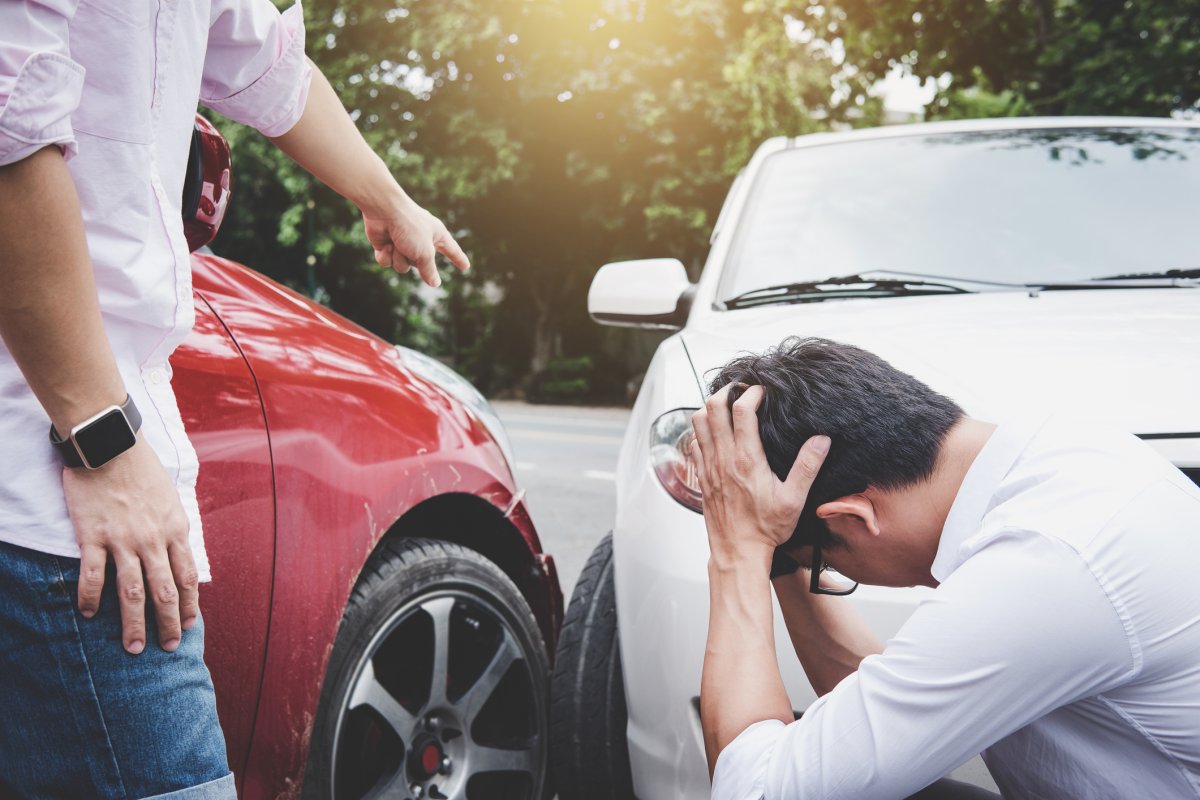It’s a typical Monday morning and you hit the road to get to work. You look over your shoulder to gauge oncoming traffic and wait for the lane to clear. You are about to press on the gas and slam — you’re rear-ended by the car behind you.

Car accidents are overwhelming, frightening and frustrating, and in the panicked moment, drivers often feel lost. Here’s what you should know in case you ever get into a car accident—big or small.
- DETAILS MAKE A DIFFERENCE: “Try and collect all the information you can at the scene. Not just the name and licence plate of the other driver,” says Ashley E. Attrell, a lawyer with CBM Lawyers.
“Take detailed notes about what exactly happened because sometimes when issues arise, it could be years down the road. Since memories aren’t perfect it’s useful, when everything’s fresh in your mind, to take notes to have a record to refer back to.” - PICTURES HELP TOO: “If you can do it safely, take photos to show the scene before you move your vehicles,” says Ashley E. Harrison, also a lawyer with CBM Lawyers.
“Photos can be useful in determining what happened. Also, take down the other person’s name and driver’s license number and the vehicle insurance information, and if you can, take a photo of their driver’s license and insurance papers.” - LOOK FOR WITNESSES: “It’s important to look around as soon as you can for witnesses and get the names and contact information of anyone who saw the collision ,” says Harrison. “People don’t often think about this in the heat of the moment, but if there are any disputes about what happened or who caused the collision — which can happen even after straightforward-seeming collisions — witnesses help.”
- YOU MAY BE ABLE TO GO HOME FIRST: If it’s a minor fender bender, don’t feel like you need to report the accident at the scene. “Sometimes it’s better to go home, collect your thoughts and then report the accident to The Insurance Corporation of British Columbia,” said Attrell. “You should report it promptly; you don’t want to wait a few weeks to file an accident report.”
- SEE YOUR DOCTOR: If you’re feeling any soreness or injuries post-accident, call your doctor.
“Get checked out and follow any treatment recommendations such as going to physiotherapy or massage therapy,” said Attrell. “A lot of people may not want to deal with their physical well-being right away and instead may focus on dealing with their insurance claim for vehicle repairs and getting that over with. Report what happened to your doctor so they can have an accurate record of your injuries and can suggest any treatment that may be beneficial.”
Don’t have a physician? Harrison suggests seeing the same physician at a nearby walk-in clinic while you are recovering, so they can be somewhat familiar with your injuries. - YOU DON’T ALWAYS NEED TO CALL THE POLICE: If you can move your vehicle safely off the road and information is readily exchanged with the other driver(s), then you may not need to call the police.
“But if it is a serious collision with significant damage, if there are injuries, if someone leaves the scene, or if you’re in an intersection and your car isn’t moveable and there’s a safety issue with respect to traffic control, you should call 911,” said Attrell. - STICK TO THE FACTS: “Anything that’s said at the scene of a crash can be used in a claim. ICBC will often ask about conversations that were had at the scene, including, ‘What did the other person say?’” said Harrison. “Conversations can be a piece of evidence that can be used but it’s not going to be the determining factor for ICBC.”
- IT’S FREE TO TALK TO A LAWYER: “If you’ve been injured in a collision through no fault of your own, it’s a good idea to talk to a lawyer whether you ultimately hire him or her to help you with your claim or not,” Harrison continued. “Because you’re less likely to make a mistake dealing with ICBC that can later cause a problem in your claim.”
- KNOW THE CHANGES. “There are some new rules. For example, there are new deadlines for submitting treatment receipts — if ICBC doesn’t pay directly for your physiotherapy etc., they have time limits on submitting receipts,” Harrison explained.

Get breaking National news
“Keep any receipts for medications or treatment or anything else that you pay for as a result of the crash, and give them to your lawyer right away or ask your adjusters if you should be submitting them.”
- THE CHANGES CAN AFFECT YOUR CLAIM: The personal injury caps that were introduced this past spring can play a role in what happens to your claim.
“If you have what’s defined as a minor injury, the amount you can recover for pain and suffering at the end of a hearing, the conclusion of a trial, or when your claim settles is capped at $5,500 which is a significant change from what it was prior to April 1,” Attrell added.
Earlier this year, the ICBC caps on personal injury claims came into effect and it’s important to know how that will affect those in a car accident. For more information, visit cbmlawyers.com.

